Congratulations, Kathryn!
|
ABP is absolutely pleased and honored and excited and proud and delighted and thrilled to learn that BACKYARD VOLCANO: And Other Mysteries of the Heart, by the great KATHRYN LANE, has won the Killer Nashville Best Short Story Collection Award.
Congratulations, Kathryn!
1 Comment
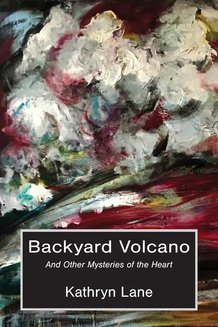 Tell us about the birth of your book. How did it get into this world? Backyard Volcano and Other Mysteries of the Heart, a short story anthology, was conceived in a dreamlike world hovering between wakefulness and deep sleep. The main story that gives the book its name, Backyard Volcano, first appeared in my consciousness as a poem. It was so full of detail that I turned it into a short story. The characters kept gnawing at my meditative time until I finally let the characters “show me the way” and it became a novella. The inspiration for Behind the Murals, one of the stories, sprang directly from a dream where a Mexican muralist painted frescoes on all the walls of his house, save for one wall on the patio. It’s also a ghost story. I savor those ideas that bubble up from my unconscious mind. I’ve learned to trust my daydreaming or dreamlike meditative states – that’s where creativity is born. Some people call it intuition. Even Einstein wrote: “The intuitive mind is a sacred gift and the rational mind is a faithful servant. We have created a society that honors the servant and has forgotten the gift.” Writing is about both. We should nourish the intuitive mind for creativity and use the servant to guide the discipline to complete the stories in written form. Do you write every day to a schedule, or do you write in bursts and sprees? I work at my writing every day. Half of that work, however, is devoted to marketing, promotion, and preparing PowerPoint presentations for book clubs and other audiences. An author must also have a social media platform. These necessary efforts take time. I try to write my fiction when I am fresh rested, yet alert for the best results. The marketing side, though also requiring creativity, is usually left to periods of the day where I need a break from writing. In essence, I write every day, except when I travel – then I take a much needed break to recharge. Give us an idea of your writing method. First draft by hand or by computer? Do you outline or improvise? My first draft is always in my head – the entire draft!! It emerges slowly on paper with a very sketchy plot. I spend time describing the characters a bit. As I write, the characters take on a life of their own and persuade me to improvise. I listen to them because that’s where creativity lies. What are your four or five (or ten) favorite books?
If you could be any character in a work of literature, who would you be? Superwoman! Especially after Gal Gadot acted in the latest film. We're interested in your next creative endeavor—would you like to share some information about it? Join my husband and me in Spain! I’ll be doing research for my next mystery thriller. But that’s genre. But it’s so much fun to write mysteries! In a more literary vein, I have another novella and short story anthology in my mind. The main story is about a little girl and her grandfather, who teaches her to play the piano. In the room where he holds her lessons, there is a huge chandelier. The old man dies, but the little girl still sees him, talks to him and plays the piano with him. Others can hear the accomplished piano concertos, but if they come into the room, suddenly the dynamic crescendos drop to a beginner’s level with the child sitting alone pecking at the keys. She grows up, goes to college and returns home to discover …ah, you’ll have to wait until I write it to find out more. And I hope Alamo Bay Press will be interested in publishing it!! Then I’m also developing a novel in my mind about a woman born and raised in Mexico, who leaves her country to come to the U.S. After three decades away, she returns home to the state of Oaxaca in southern Mexico to discover the bittersweet changes of the town and its inhabitants. All these projects will take me about four years out. 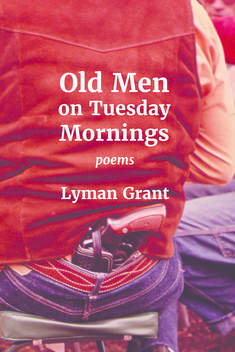 Tell us about the birth of your book. How did it get into this world? The birth of Old Men on Tuesday Mornings goes back to the late 1980's when in my mid-thirties I decided to re-commit myself to my teenage dream of being and living like a poet (whatever that meant). I was part of what was then called "the men's movement," and I joined an informal poetry group comprised of John McElhenney, Bill Jeffers, David Jewell and maybe a couple of other men. We were all associated with The Austin Men's Center, whose founder was John Lee. And all of us were involved in someway with MAN! Magazine, a pretty successful newsstand publication at the time. Times changed. The men's movement was mainstreamed. Lives changed. John Lee left Austin and had a career as a public speaker, group leader, and teacher in men's issues and recovery. But we all remained friends even though we seldom saw each other. Time passed. Then in the fall of 2014, John Lee has returned to Austin, and we found ourselves available and eager to start another poetry group. For a couple of years, I had been writing prose, not poetry, so I was certainly ready to pick up the habit again. Our process was simple: mostly we met at John's Lee's house, talked about what we had been thinking, read some poems, wrote a draft of a poem, shared it. And then, in my case at least, I went home and revised it, if I could. We met for about six months then lives changed again, but these men had gotten me writing poetry again. Do you write every day to a schedule, or do you write in bursts and sprees? I work full-time and have a family, so I don't have a regular writing schedule. This book was written at first a poem a time, maybe two a month. Then the summer of 2016, I was able to protect a regular routine for a couple of months, while reading and studying the late poems of Jim Harrison, so he is kind of muse for much of this book. Give us an idea of your writing method. First draft by hand or by computer? Do you outline or improvise? My method varies. Some of these poems evolved from general conversations with my friends, say, a physical ache or a regret. We would write in a notebook. I am not a fast or inspired writer, so I revised those poems a lot. I wrote other poems inspired by Jim Harrison's poems. In the morning, I would read three or four or more poems. Feel what was provoked, come up with a first line, then (like William Stafford suggests) follow where that line leads. By noon, I would have a pretty good draft that I would tinker with for weeks. All of that would have been in front of a computer. For others, I might have a line or title that rattles around in my head for weeks until a second idea joins it and gives it direction, and that method would be to write a few lines by hand on an envelope or receipt that I hope I don't lose before I can get to the computer. What are your four or five (or ten) favorite books? Wow. There are too many. Related to this book are
Other books in the past;
If you could be any character in a work of literature, who would you be? John Ames in Gilead by Marianne Robinson. Or Walt Whitman in Song of Myself. 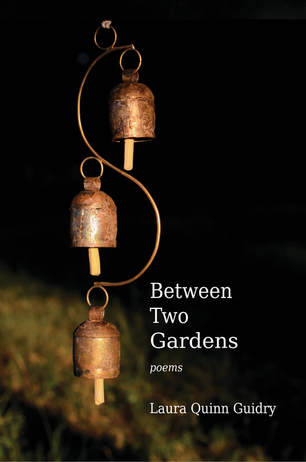 Tell us about the birth of your book. How did it get into this world? Sitting in my writing studio a couple of summers ago, my friend and mentor Sally Ridgway and I gave one another a challenge – that we would each put together a poetry manuscript for a first book within the year. We researched what was involved in compiling the manuscript. For years, we'd attended conferences where poets talked about this topic. So we pulled out our notes. At a recent Poetry at Round Top panel discussion, one poet had offered this piece of advice – when trying to group the poems, ask “What is the poem thinking about?” Sally and I agreed we would check in periodically on our progress and be each other's first reader. It was the impetus I needed. I've always known what I wanted the title of the book to be. Luckily, I have this wonderful studio – the one room in the house I chose to carpet so I could sit on the floor. I sorted poems over several months with the luxury of being able to leave the stacks where they were. Always in the back of my mind, was a quote from Robert Frost (that I had read in Jeffrey Levine's excellent article “On Making the Poetry Manuscript”), “ 'If there are x number of poems in a book, the book itself is the final poem.'” I enjoyed the process of putting the book together, seeing how the poems related to and played off each other. And Sally and I both finished our manuscripts within the year. Do you write every day to a schedule or do you write in bursts and sprees? Definitely, bursts and sprees. But if the wheels are spinning and I'm reading poetry or books about poetry, studying craft – I think that all counts. Give us an idea of your writing method. First draft by hand or by computer? Do you outline or improvise? I always write the first draft by hand, but I put it on the computer quickly and print it out. Then I keep the poem close to me – in a pocket perhaps, through rooms in the house as I move about, often times in the car. I always say my poems to myself, silently and out loud. Sound is crucial to poetry. So when I'm creating and especially revising, I choose words for their sounds as well as meaning. I can go through many revisions for just the right sound of the words. The way the poem looks on the page is important to me, too. I am drawn to symmetry. What are you four or five (or ten) favorite books? I'm going for ten because I want to name poetry books, works of fiction and an autobiography. In poetry, The Poetry of Rilke and Uncollected Poems, both translated by Edward Snow. My husband Larry gave me Letters of Rainer Maria Rilke, Vols. I and II which I treasure. Also on the list are Mary Oliver's American Primitive; The Wild God of the World – An Anthology of Robinson Jeffers, selected by Albert Gelpi, and A Book of Luminous Things – An International Anthology of Poetry, edited by Czeslaw Milosz. I could keep going but I'll move to fiction and name Milan Kundera's The Unbearable Lightness of Being, Leo Tolstoy's Anna Karenina, Toni Morrison's Beloved and Jeffrey Eugenides' Middlesex. And the autobiography is Carl Jung's Memories, Dreams, Reflections. If you could be any character in a work of fiction, who would it be? Bathsheba Everdene in Thomas Hardy's Far From the Madding Crowd. She's smart, daring and independent, not intimidated or defined by the expectations society had of a woman in nineteenth century England. She's right out there in the fields with her workers and earns their respect. She's also beautiful and men fall in love with her but unfortunately, at least for awhile, she falls for the wrong one. We're interested in your next creative endeavor – would you like to share some information about it? I would like to spend as much time as possible in my studio writing, reading, listening to music. I have my grandmother's piano in the room and I said I was going to learn to play it again. I will continue to submit poems to literary journals and anthologies. I am fortunate to live in a beautiful, wild place and, for as long as possible, I want to enjoy it and, hopefully, in the words of Robinson Jeffers, “feel and speak the astonishing beauty of things.” 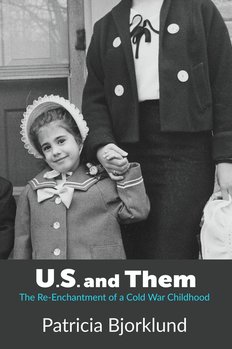 Tell us about the birth of your book. How did it get into this world? U.S. and Them surfaced from decades of mulch, memories I cultivated and bounced around over nine years of post-secondary education, a few childhood recollections taking shape as poems, and others as works of fiction, until finally the stories came together as a book-length memoir. I don’t recall any joy in gathering letters to form words. I can’t remember when I had the slightest hint that writing was an outlet for feelings such as loneliness or hunger. But I can't forget viewing the horizontal lines of my yellow writing tablet with a stomachache and the idea that committing pen to paper was serious business. I knew writing was more than immediate gratification, more than saying I am…This is…She said...etc. I recall gravity, power—the knowledge that pen to paper meant leaving something behind—the knowledge that what is written can be shared, revisited, and perhaps most importantly, judged. I remember thinking—you can't hide behind the 5th Amendment when you write. Delusional and a bit paranoid? Yes, but all prophets are. And all kids are prophets. I wrote believing in God and Big Brother and that the big encyclopedia in the sky would eventually suck up every word I put down, and I damn well had better get it right. I tore paper, flushed paper, burned paper and ate paper. I didn't write about these episodes, but such was the level of scrutiny I felt as a kid. We look into our parents' eyes to see who we are. They give us our cue. So, not only was my world on the brink of apocalypse in the 1960s, I was always on the brink of writing a book about it. Do you write every day to a schedule, or do you write in bursts and sprees? Ideally, I'm doing both, right? The bursts and the sprees—even when stingy. I’m an advocate of scheduling a time to write dutifully, and then stealing away from something else I planned on doing. I have to trick myself. Of course it is top-dollar when I absolutely need to go back to a place in my writing, and even better when I'm so distracted, I know darn well that I haven't really left! I love scheduling time in the morning, BC—Before Creation. I can wake myself up to write in the twilight hours but I'm not much good if I stay up late to write. That being said, the times or situations I avoid are the very same writing scenarios that I will enlist when I’m stuck. Writing is mischievous work. Give us an idea of your writing method. First draft by hand or by computer? Do you outline or improvise? I have no hierarchy of genre or method. I have felt overwhelmed by large projects. I still do. I outline just as something to hang on to, and then I improvise, as you say, which is really the process of writing the main draft. Every method, task, strategy I employ is simply a way to trick myself out of the insecurity I seem to be facing at the time. I like to clear my head with a free write. I aim to find a word, line or image that will provide at least the kernel of an idea. That’s all. Everything is mulch and nothing is wasted. I trust the process. When I start this way, I always come out with a streak of solid writing. My best ideas come as soon as I slide into a hot bath. Paper is lower stakes in my mind, so I often start nonchalantly on the back of an envelope, a bill, laundry list, tax form (I try to avoid the cliché of writing on a napkin). I laugh when I think about the days of matchbook covers, the phone numbers and secret messages hidden inside. I have started projects with whatever nearby object I can write on—but not to be cute. Sometimes, if I’m struggling with a character I write a character sketch poem, however un-poetic it may be, it can get me to some of the facts. For example, “Soul Train” is a chapter that moves in a stream of consciousness, but it began as a rhyming poem. I don’t generally like poetry that rhymes, but I was goofing around and I learned something about myself, and I recalled a wonderful revelation I had while watching and grooving to Soul Train. I draft on paper—journal, legal pads—anything with lines. Once I snag an idea or work up a tirade, I like to go to my Mac because I can type faster than I can write. I also find that typing is easier on my hands. What are your four or five (or ten) favorite books? In terms of inspirations for U.S. and Them, Jeanette Winterson’s Oranges are Not the Only Fruit is my favorite work of autobiographical fiction. I was arrested by the book, its wisdom and humor, its tone and the basic subject matter (childhood, and evangelical Christians). Frankly, I was angry when I first read it. It seemed she had written MY book (for the most part). First, I had to forgive myself for not writing my story sooner, and then as I matured a bit, I had to live with the reality that I am no Jeanette Winterson. I thought quite a bit about publishing my work as fiction since it allows a certain freedom and indeed, I think Winterson’s personal story is more magnificently rendered in her novel than in her actual memoir. I can’t do without David Sedaris’ quirky, piercingly funny family stories. I blew out the candles on more than one birthday cake with the wish that Sedaris would say my name for any reason. I appreciate his genius, love his tone and the timing of his punch lines, especially in Dress Your Family in Corduroy and Denim and Me Talk Pretty One Day. Flannery O’Connor: after reading “A Good Man is Hard to Find” I read her Complete Stories. She is the super of heroes. She changed me. Writing a Book that Makes a Difference, Philip Gerard’s guide for tackling creative nonfiction is a book I read before I applied to UNC Wilmington’s MFA in Writing. From this no-nonsense book on craft I came away with the courage to apply to their program. Before I ever met him, Gerard’s book had me convinced that I could write, and I could make a difference in the world. I still teach it, and while I must have 20 others, it remains my go-to text for creative nonfiction. James Baldwin is to me, the premier essayist of the 20th Century. The first time I saw him was on TV, on the Dick Cavett’s Show. Mainly I remember Baldwin’s eloquent words and tone of indignation—and I can still picture my parents’ shock over Baldwin’s commentary on race relations. I read The Price of the Ticket—his collective works. Couldn’t put the book down even after I’d finished it. My mother asked me what could I ever have in common with a gay black man. “His humanity,” I said! I never returned the book to the library (but I did pay to have it replaced). Baldwin’s understanding of human nature, his complicated relationship with his father, his preacher cadence, all this made him so important to me. Baldwin’s book is largely the reason I pursued my high school equivalency diploma at age thirty-five. If you could be any character in a work of literature, who would you be? Right now I feel like a character living in Orwell’s 1984. I wish I find myself seated in a big open library, sitting with my fellow Americans, listening as Barak Obama reads excerpts from The Audacity of Hope. We're interested in your next creative endeavor—would you like to share some information about it? The project is called “Stories I’d never Tell”. Right now it is multi-genre. It includes events that don’t appear in U.S. and Them, and it features reflections about the meaning and limitations of truth and memory given the fact that my family has begun to respond to my memoir, and given the fact that a year ago, my son was diagnosed with brain cancer, and six months after that, I was told that my father has Alzheimer’s. The experiences with my family cut very deep, and keep changing me and what I thought I knew about how mind, memory and imagination work. I don’t think I’ll ever stop exploring this question. On September 18, Dave Oliphant read from his new ABP book of poems, Maria's Book. It was a terrific reading, and it's a terrific book...Many thanks to Malvern Books for hosting the event!
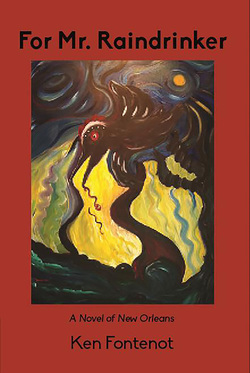 "Originality results from the complexity of influences. One woman I mentored said she was afraid that by reading someone else, his or her style might somehow have a detrimental effect on her writing. I said: 'Don’t worry about that. It doesn’t work that way. Just read. Keep reading and the influences will sort themselves out in their own manner'....The theory of the writing process is no secret. Read something, then write something. Read something else, then write something else, and show, by what you have written, what you have learned. Of course, it’s not quite so simple. The processes of seeing, remembering, and experience with the world must come into play. To continue to test the limits of syntax and diction: that’s what I shoot for." Read the whole interview at Cindy Huyser's website! 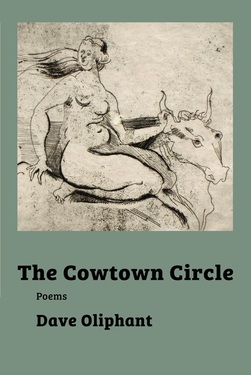 Tell us about the birth of your book. How did it get into this world? Through the good graces of Alamo Bay Press. The book itself is about whatever moved me at the time I was writing it, my wife frequently, but also books that I had read—one entitled Lone Star Stalag—people I knew or had known, scenes that I saw, artwork that I came across, and music I heard. Do you write every day to a schedule, or do you write in bursts and sprees? Bursts and sprees, although when I wrote KD a Jazz Biography I would write for a long spurts. Give us an idea of your writing method. First draft by hand or by computer? Do you outline or improvise? On some pieces I write by hand, but in others I begin on the computer. New York Jewish poet Louis Zukofsky taught me to structure my poems according to word count, although I do not always use that approach. I like to try different forms. William Carlos Williams was one of my first influences and continues to inspire me. What are your four or five (or ten) favorite books? Moby Dick, Troilus and Criseyde and the Canterbury Tales of Chaucer, Don Quijote, Song of Myself of Whitman, William Carlos Williams’ poetry and In the American Grain, Joyce’s A Portrait of the Artist as a Young Man, Hart Crane’s The Bridge, Louis Zukofsky’s A, Faulkner’s The Sound and the Fury, Shakespeare’s Hamlet and King Lear, Homer’s The Iliad and The Odyssey, and Beowulf. If you could be any character in a work of literature, who would you be? Gavin Stevens, the lawyer in several Faulkner novels, especially Intruder in the Dust and Light in August. We're interested in your next creative endeavor—would you like to share some information about it? I’m typing up my travel journals, revising them, and adding material that I intended to write but in the midst of the travels to the East Coast, Spain, England, Scotland, Brazil, Chile, and Mexico I did not always have time to do so. I have thought to title the material Travels of a Texas Poet, but it may be too long and I would then include only my various trips to Chile and call it A Texas Poet in Chile. |
Newer news on top.
Please scroll down for more.... Categories
All
|
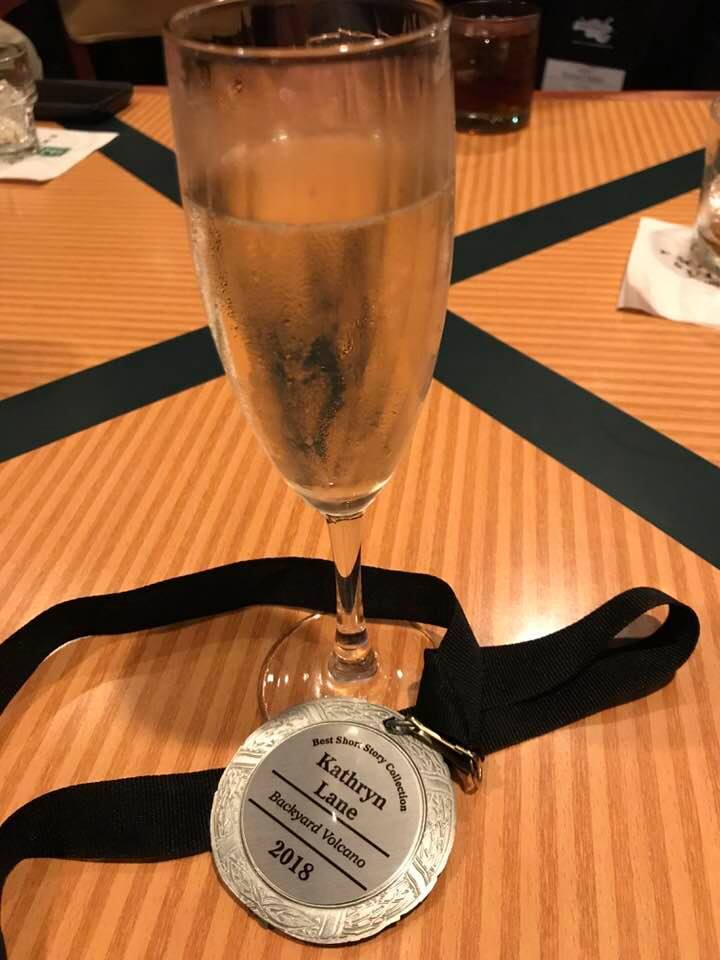
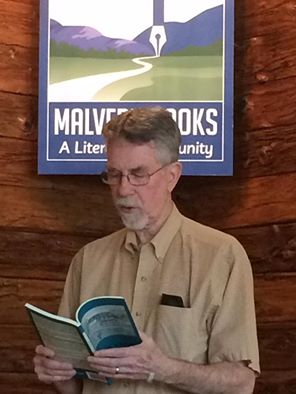
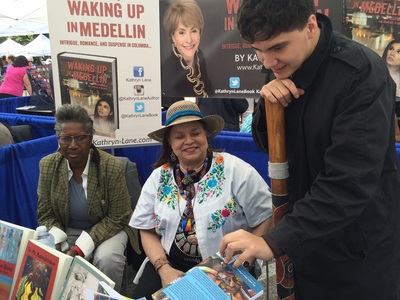
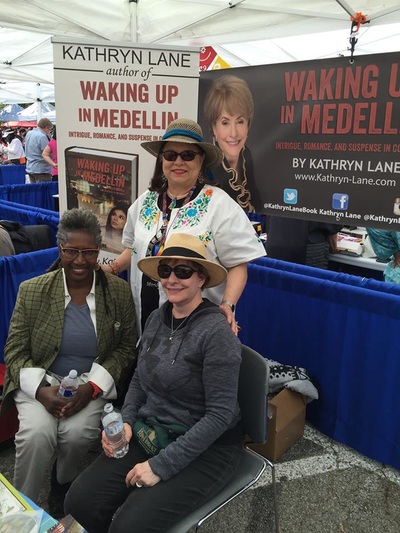
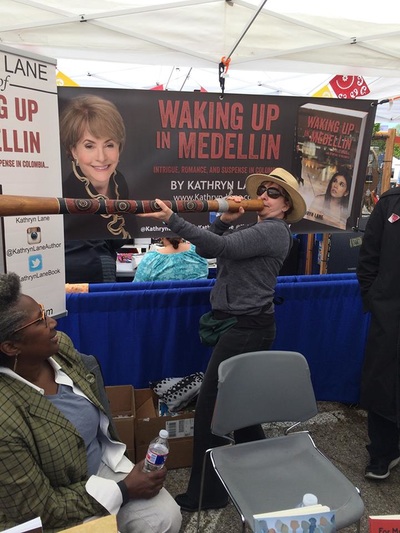
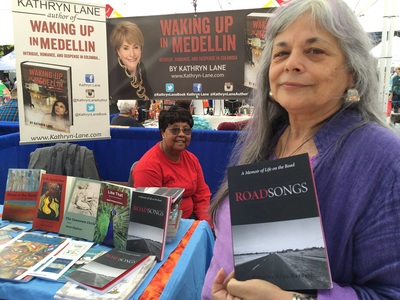
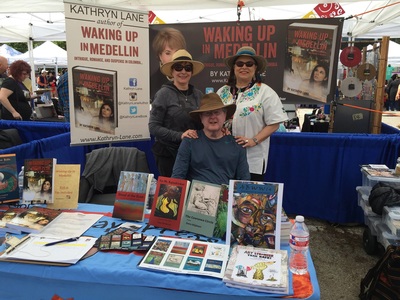
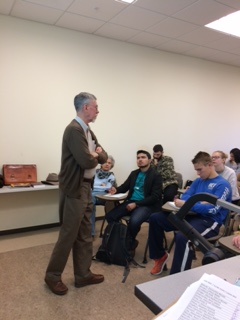
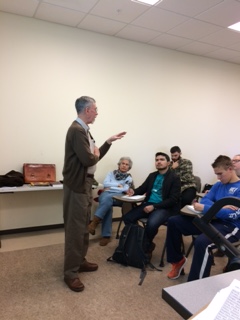
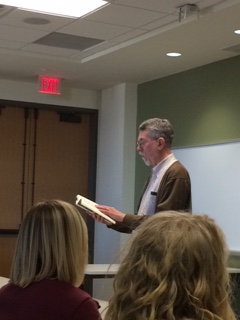
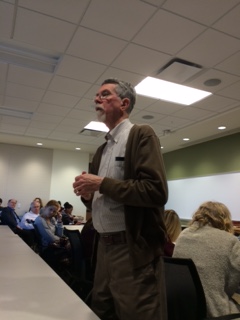
 RSS Feed
RSS Feed